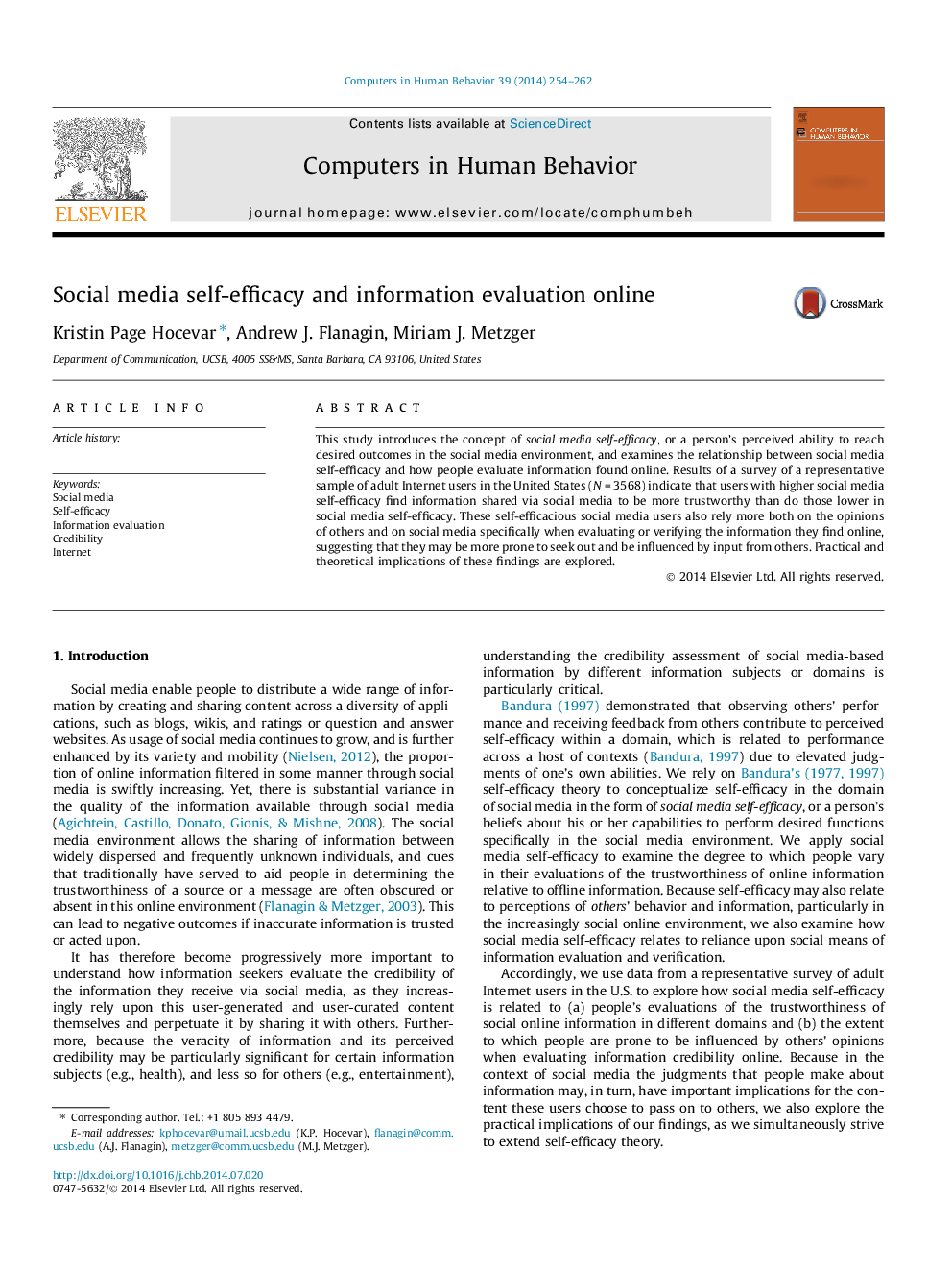| Article ID | Journal | Published Year | Pages | File Type |
|---|---|---|---|---|
| 6838842 | Computers in Human Behavior | 2014 | 9 Pages |
Abstract
This study introduces the concept of social media self-efficacy, or a person's perceived ability to reach desired outcomes in the social media environment, and examines the relationship between social media self-efficacy and how people evaluate information found online. Results of a survey of a representative sample of adult Internet users in the United States (NÂ =Â 3568) indicate that users with higher social media self-efficacy find information shared via social media to be more trustworthy than do those lower in social media self-efficacy. These self-efficacious social media users also rely more both on the opinions of others and on social media specifically when evaluating or verifying the information they find online, suggesting that they may be more prone to seek out and be influenced by input from others. Practical and theoretical implications of these findings are explored.
Related Topics
Physical Sciences and Engineering
Computer Science
Computer Science Applications
Authors
Kristin Page Hocevar, Andrew J. Flanagin, Miriam J. Metzger,
